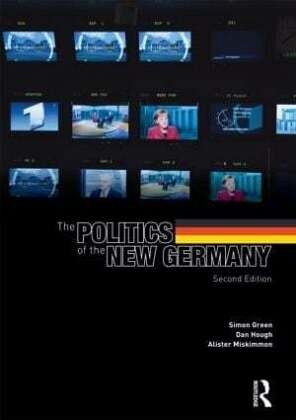
The Politics of the New Germany

PAYBACK Punkte
24 °P sammeln!
The Politics of the New Germany continues to provide the most comprehensive, authoritative and up-to-date textbook on contemporary German Politics. It covers the entire postwar era but has a particular focus on the post-reunification era. The text takes a new approach to understanding politics in the post-unification Federal Republic. Assuming only elementary knowledge, it focuses on debates and issues in order to help students understand both the workings of Germany's key institutions and some of the key policy challenges facing German politicians. Written in a straightforward style by three ...
The Politics of the New Germany continues to provide the most comprehensive, authoritative and up-to-date textbook on contemporary German Politics. It covers the entire postwar era but has a particular focus on the post-reunification era. The text takes a new approach to understanding politics in the post-unification Federal Republic. Assuming only elementary knowledge, it focuses on debates and issues in order to help students understand both the workings of Germany's key institutions and some of the key policy challenges facing German politicians. Written in a straightforward style by three experts, each of the chapters draws on a rich variety of real-world examples. In doing so, it highlights both the challenges and opportunities facing policy-makers in such areas as foreign affairs, economic policy, immigration, identity politics and institutional reforms. The book also takes a bird's-eye view of the big debates that have defined German politics over time, regardless of whichparty happened to be in power. It pinpoints three key themes that have characterised German politics over the last sixty years; reconciliation, consensus and transformation. This 2 nd edition has been revised and updated throughout and features new material on: Grand Coalition Lisbon treaty Constitutional Court Financial crisis and credit crunch Reform of social policy Afghanistan













